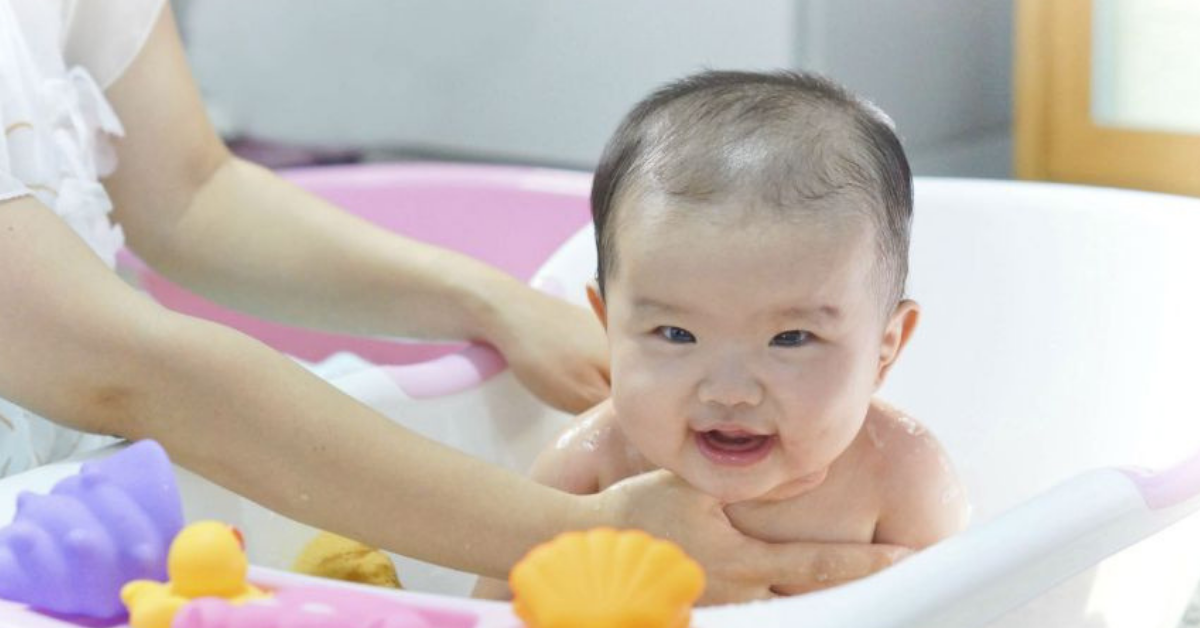Advertisements
It's common knowledge that certain precautions should be taken when bathing babies. Issues such as delicate skin, which can be susceptible to allergies caused by inappropriate products, and water temperature, for example, may seem obvious, but there's always something new to learn when it comes to caring for young children. Therefore, it's worth noting some issues related to bathing babies, such as shampoo selection, timing, and specific precautions for certain seasons, such as summer and winter.
When it comes to shampoos, the first step is to check for the potential presence of any allergens—those components that can cause skin irritation in children. In this regard, the first thing to note is that, currently, several studies have highlighted that phthalates, a chemical present in several children's products (among which shampoos, talcum powders, creams, and diaper rash ointments stand out), can cause health problems.
Advertisements
Among the studies cited, one conducted by the journal Pediatrics stands out, highlighting the presence of these phthalates in the urine of babies exposed to shampoos containing this substance. The concentration levels of this substance varied according to the baby's size: the smaller the baby, the greater the amount of phthalates found in their urine. This can be harmful, as the presence of this chemical component can be associated with problems in the development of male genital organs and also because phthalates can be considered carcinogenic, according to PROTESTE (Brazilian Consumer Protection Association).
Once PROTESTE detected the impacts of this substance, the agency requested that Anvisa (National Health Surveillance Agency) take action to ban the substance from baby products, as the use of phthalates is currently not regulated by the Agency. The need to define limits for this is urgent, as information often fails to reach all segments of the population, and this could ultimately become a public health problem.
If you want to recognize the use of such toxic substances in products used by your baby, it's recommended to pay close attention to labels and the ingredients listed there. However, unfortunately, phthalates aren't always listed among the ingredients of a given product, making this information difficult.
Advertisements
Regarding other care, such as bathing in winter, it is important to emphasize that, although common sense suggests that the baby's head should be washed first on these occasions, this should only be done if the parents dry it in sequence or if the head is the last part washed during the child's bath.
This can be explained by the fact that a baby's head is always the warmest part of their body—which can also be proven by the fact that this is where little ones sweat the most. This occurs because sweat regulates body temperature, and therefore, the more sweat is produced, the higher the body temperature rises. This phenomenon can be observed, for example, during breastfeeding, when the baby's sucking efforts are concentrated on the head, as well as through contact with the mother's body. Furthermore, because babies' body temperature regulation systems are not yet fully developed, their temperature can fluctuate very quickly. Therefore, when bathing a baby in winter, if you choose to wash their head first and not dry this part of the body, you contribute to a drop in body temperature and, consequently, the child will feel cold for the rest of the bath.
Similarly, some specific precautions should be taken when bathing during the summer. A common question among parents, especially first-time mothers, is whether it's okay to give babies more than one bath during this time of year. The answer to this question is that, yes, it's okay to give more than one bath during the summer, and these baths can even help the child feel cooler during periods of intense heat. However, there are precautions that must be taken to avoid harming the baby.
In this regard, nurse Natalia Turano of Albert Einstein Hospital argues that mild soap should only be used for the first bath of the day. Subsequent baths should be water-only. Turano also points out that excessive soap use can harm children's skin, which is highly susceptible to problems such as allergies.
Furthermore, another important measure to be taken when bathing during the summer is that, even on hot days, you should opt for using warm water, due to the baby's temperature regulation issues.



